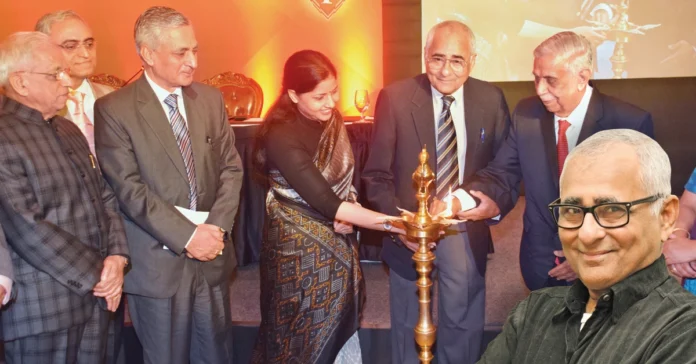
By Inderjit Badhwar
There are few moments in the life of a journalist when one feels both humbled and privileged at once. Writing this note, on the 96th birthday of former Chief Justice of India, Justice MN Venkatachaliah, is one such moment.
To celebrate him is to celebrate the best of what India’s judiciary and public life have to offer—clarity of mind, purity of purpose, and an unshakeable belief that justice, at its highest form, is an act of moral imagination. Justice Venkatachaliah represents not merely a jurist of towering intellect, but a man of immense gentleness, humility, and humour. He is, in every sense, a rare amalgam of wisdom and warmth.
I have had the singular privilege of knowing him personally—both as a journalist and as the Chief Patron of India Legal. And though his résumé reads like a chapter from India’s modern judicial history—25th Chief Justice of India, former Chairman of the National Human Rights Commission, head of the Constitutional Review Commission, and recipient of the Padma Vibhushan—it is his human qualities that shine brightest.
He is a man of reason, but also of reverence. A rationalist who bows before the mystery of divine wisdom. A modernist who sees technology and spiritual consciousness not as adversaries, but as complementary forces propelling humanity forward. Even in his tenth decade, he is not merely young at heart—he is intellectually incandescent.
I can never forget the first words he ever said to me, at one of our India Legal seminars. With that famous mischievous twinkle in his eyes, he smiled and said: “Ah! You are the people we must fear the most… because you keep us straight!” How many judges today would say that to a journalist—with such grace, humility, and humour?
That moment encapsulates the man. Justice Venkatachaliah’s love for freedom of the press is not rhetorical—it is instinctive. He understands that a fearless press is not an adversary of the judiciary, but its mirror, its conscience, and sometimes, its necessary critic. He has always believed that scrutiny strengthens, not weakens, the institutions of democracy.
When he speaks, one senses the delicate balance between moral depth and pragmatic wisdom. His reflections on judicial accountability—“Respect shouldn’t generate immunity from criticism”—are as relevant today as when he first spoke them. In an era when public trust in institutions must be constantly earned, his belief that no one can watch a watchman resonates like a constitutional mantra.
Equally remarkable is his forward-looking embrace of technology. Decades before the legal fraternity began grappling with Artificial Intelligence, Justice Venkatachaliah was already thinking about the convergence of ethics, law, and innovation. For him, AI is not a threat, but a tool—one that can help reduce pendency, democratise access to justice, and make the law more responsive to human need. Yet, he never forgets to remind us that machines can read, but only humans can interpret with compassion.
In conversation, he moves effortlessly from jurisprudence to philosophy, from constitutional law to the Upanishads. After retirement, he famously declined high government office—including the vice- presidency—to study Indian spiritualism. He told us: “I thought the Chief Justice of India must have some restrictions on his post-retirement options.” That was not just humility—it was institutional integrity personified.
Even at 96, he remains passionately engaged with the evolution of legal education. He believes that the future of law lies in the hands of young minds who must be equipped not only with technical skill, but also moral imagination. He often says that the world is changing faster than ever before, and that legal education must keep pace with “the new species of Homo sapiens”—his humorous yet profound way of describing the transformative potential of today’s generation.
Justice Venkatachaliah reminds us that India’s strength lies in her capacity to hold contradictions in harmony—faith and reason, tradition and technology, justice and mercy. In times when our national discourse often teeters on the edge of polarisation, his voice is a calm, luminous reminder that true progress lies not in noise, but in wisdom.
As the Chief Patron of India Legal, he continues to inspire us every day. His guidance has shaped our commitment to fearless, ethical, and intellectually rigorous legal journalism. He has always encouraged us to ask difficult questions, to analyse critically but fairly, and to uphold the spirit of constructive scrutiny.
On his 96th birthday, we celebrate not only his remarkable longevity, but the vitality of his ideas. Justice MN Venkatachaliah stands as a testament to the enduring power of conscience in public life—a beacon of integrity, intellect, and infinite kindness.
May his light continue to guide the courts, the Constitution, and the country he has served with such devotion.
And may that twinkle in his eyes never dim.

